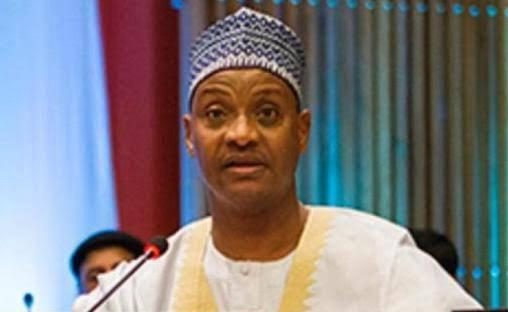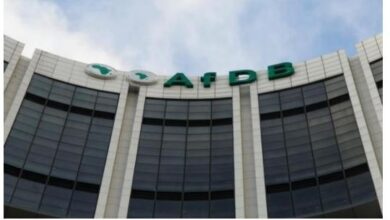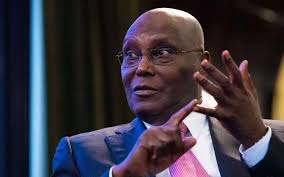Rebels rising and the new era of state capture, by Usman Sarki

When the Taliban forces swept across Afghanistan and entered Kabul on August 15, 2021, the world held its breath and pondered upon the consequences of such a major geopolitical tremor in that part of the Asian continent. But when the forces of the greatest military power the world has ever known, the United States of America, were seen retreating in chaos and disarray, abandoning the country to the rebels, the world resigned itself to live with a new order of rebels rising and seizing power in countries by the sheer might of their arms and audacity. Revolutions and discombobulations within nations may occur in fixed circles and in given eras. However, their occurrence in this day and age presents a dilemma to the hopes of democratic takeover of governments, and the establishment of constitutional orders of succession.
The so-called January 6, 2020 “Insurrection” in the United States of America that led to the seizure of Congress and willful destruction of the symbols of American democracy by disgruntled elements, brought into sharp relief the racial and class dichotomies existing in that country, and the polarisation of its population along lines of separation that cannot be bridged through persuasion or accommodation. The aftermath of the second coming of Donald J. Trump to power is being felt already across America and much of the world, where established orders of interstate relations are being overturned and the stability of countries and regions are being threatened. The present climate of anxious uncertainty might lead to the emergence of forces that may not find it convenient or even reasonable to operate within the democratic process and order, but seek to impress their identities and achieve their objectives through unorthodox means, such as coups, rebellions and armed insurrections.
In Syria, the speedy and dramatic fall of the Bashar Al-Assad regime and the triumphant entry into Damascus by the rebel forces on December 8, 2024, left the world both shocked and surprised. It was a shock occasioned by how a supposedly well entrenched regime backed by powerful allies like Russia and Iran could crumble and topple over so quickly without any visible resistance. Surprise in the sense of how the rebels could be so mobilised and made effective to traverse from Homs, Hama and other locations, seize Aleppo and march on Damascus virtually without any credible opposition. The world forgets incidents very quickly. Less than 20 years ago, these same forces rampaged around the Middle East from Iraq to Syria and beyond, bringing death and destruction of apocalyptic proportions to everywhere that they took control of.
The Islamic State of Iraq and Syria, ISIS, or Da’esh, Al-Qa’ida and what have you, coalesced around a common ideology of resistance to established authorities in the countries of the region, and adopted the heinous policies of killings and executions that instilled a sense of fear and trepidation throughout the region and beyond. Today, elements of these forces have become the effective rulers of Syria, and they are being received with open arms by governments across the region. What better encouragement can there be to other rebel forces with the means and ability to form and overthrow existing orders in their countries or anywhere else for that matter? What happened in Syria is also on the verge of being replicated in the Democratic Republic of Congo, DRC, that vast country that has been a theatre of violent and bloody conflicts and unrest for several decades, perhaps predating its independence.
The rapid march by the forces of the M23 and its coalition partners with the alleged support of Rwandan national army elements, took both the United Nations and African peacekeepers as well as the forces of the DRC by surprise, ending in the capture of Goma at the end of January 2025 and the westward advance of the rebel forces. The threat to march on to Kinshasa and bring the whole of the DRC under rebel rule is palpable and not to be shrugged off under the circumstance. What is taking place in the DRC is also playing out in Somalia, Sudan, Libya and Mozambique. In the last count, 20 African countries were said to be confronted with the threat of war, internal rebellion and insurgency. Most of these unrests are driven by discontents with the status quo and entrenched regimes with dubious antecedents and questionable legitimacy. A lot of the conflicts are also fuelled by resource exploitation and illegal profits from such ventures.
With these developments, a trend is now being established that seems to be a throwback to the 1960s in Latin America and Africa, when rebels and national liberation forces emerged and took over the mantle of leadership of their countries by overthrowing dictators and colonial regimes, thereby freeing their countries from odious and reprehensible systems of overlordship. Whether in today’s climate of global democratic aspirations such measures would be necessary or desirable is a different matter, especially viewed against the spreading discontents around democracy and the global liberal order. Much of the grievances of peoples are around their physical security and economic opportunities both of which are denied to them by the forces of liberalism and negligence. Corruption and maladministration in most cases have thrown people into despair and regretful of their attachment to empty and meaningless slogans around democracy, human rights and freedom, which seldom translate into equal opportunities for them.
The disparities in wealth, opportunities, comfort and security between nations and among peoples around the world, make it rather difficult to adhere to a principle of government that perpetuates such dichotomies and fails to redress such grievances built around the suffering of people while elevating inequality as a fact of life. Democracy must mean something realistic and tangible for the people if it needs to remain relevant and of any value in the arrangement of our societies. Factors like elections and the organisation of political parties must mean the difference between hopelessness and hopefulness for the people. Herein also lies the urgent need to assess the efficacy of liberal democracy, especially in Africa, in the era of state capture by putschists, rebels and insurgents.





